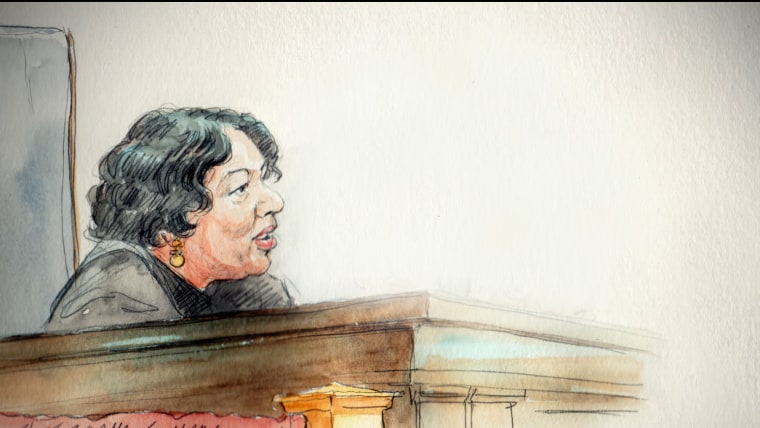WASHINGTON — The Supreme Court on Tuesday morning upheld Michigan's ban on using race as a factor in college admissions.
In a 6-2 ruling, the justices said the state did not violate the U.S. Constitution when its voters banned affirmative action. The justices say that a lower federal court was wrong to set aside the change as discriminatory.
Justices Ruth Bader Ginsburg and Sonia Sotomayor dissented. Justice Elena Kagan took no part in the case, having worked on the issue when she was at the Justice Department.
In 2006, 58 percent of Michigan voters approved Proposal Two, amending their state constitution to ban affirmative action. The state justified the vote as an effort to put an end to racial preferences.

But defenders of affirmative action said the ban amounted to an act of discrimination, because it blocked only minority students from seeking preferences in school admissions.
They argued that students seeking, for example, a preference for admitting children of alumni could take their case to a school directly, while those seeking a racial preference would have to first persuade voters to amend the state constitution.
WATCH: Pete Williams discusses Supreme Court ruling
Michigan was the setting for the Supreme Court's 2003 ruling that said colleges and universities could consider race as a plus factor in school admissions in order to achieve a more diverse student body. The vote to ban the practice followed the court's ruling.
On Tuesday, the justices in the majority stressed that the ruling says nothing about the merits of affirmative action itself, only the process by which a state can ban it.
"There is no authority in the Constitution of the United States or in this court's precedents for the judiciary to set aside Michigan laws that commit this policy determination to the voters," wrote Justice Anthony Kennedy.
"Deliberative debate on sensitive issues such as racial preferences all too often may shade into rancor. But that does not justify removing certain court-determined issues from the voters' reach. Democracy does not presume that some subjects are either too divisive or too profound for public debate," he said.
Sotomayor took twelve minutes to summarize her dissent.
"We cannot wish away racial inequality," she said. The Bronx-born justice has written extensively about the role affirmative action played in her own education.
Seven other states have banned affirmative action — Arizona, California, Florida, Nebraska, New Hampshire, Oklahoma and Washington.